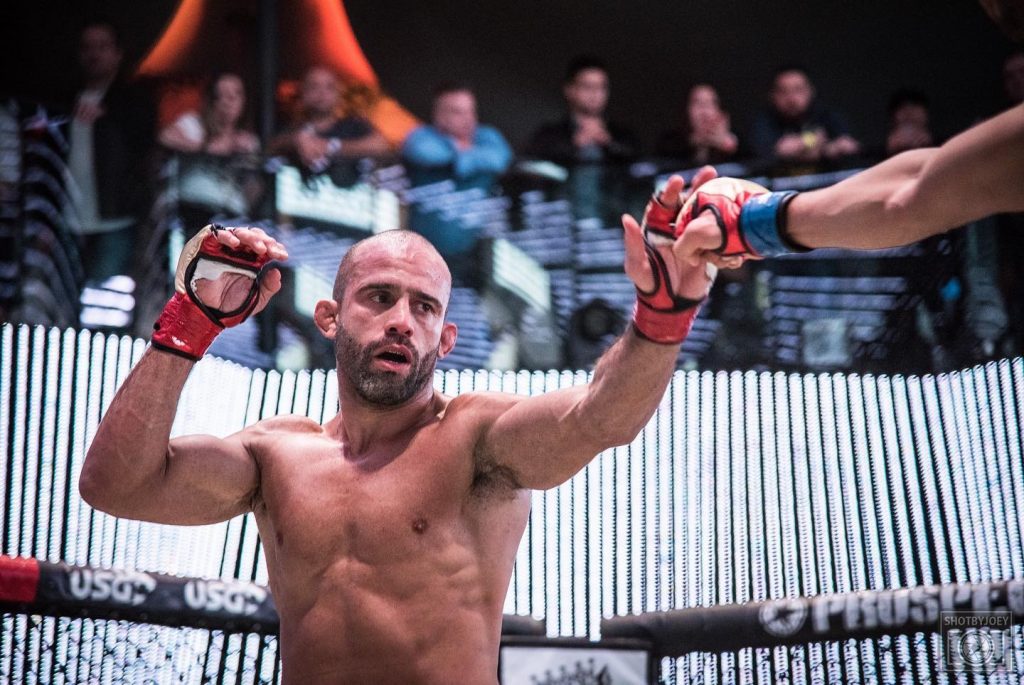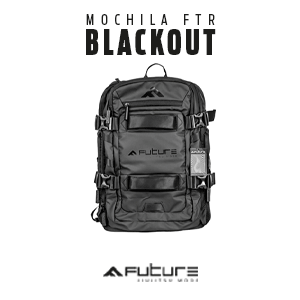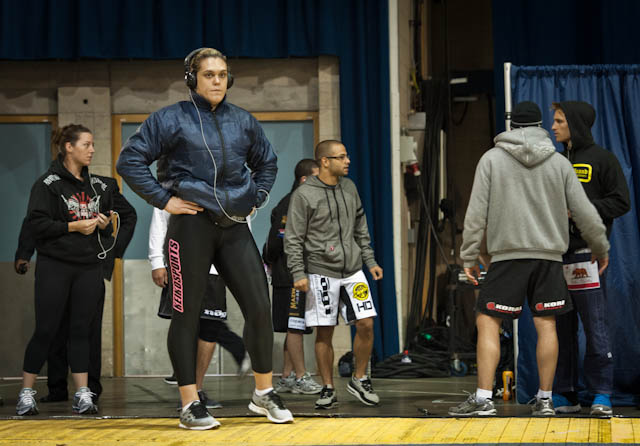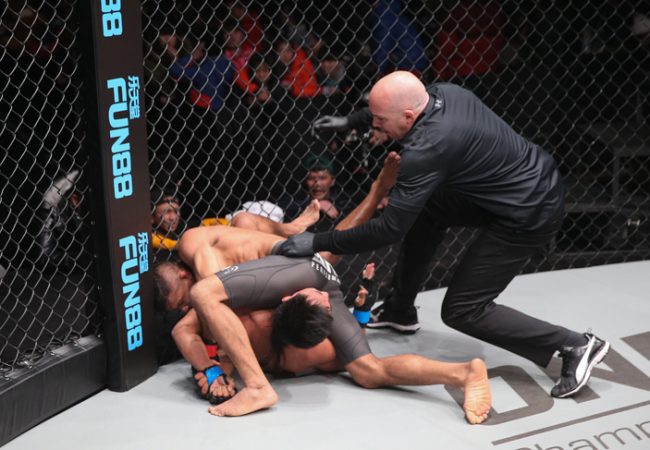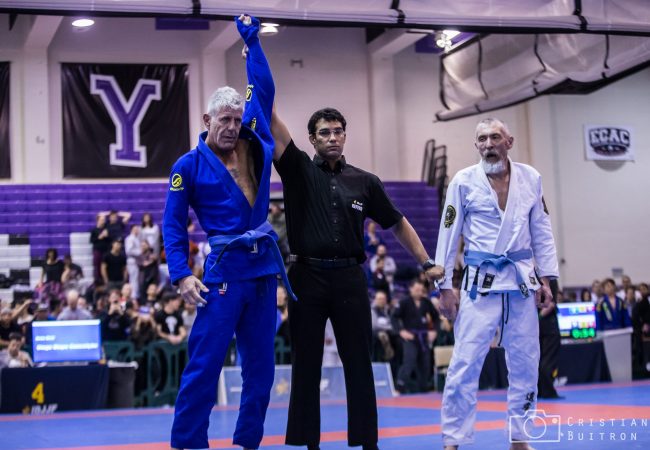After eight years away from the cages, Jorge Britto, 40, decided it was time for another extreme challenge: to resume training and fight in an MMA match.
This month, the Rio de Janeiro native, now living in Canada, where he leads Jiu-Jitsu For Life in Toronto, bid his farewell to the sport. His final fight took place March 8 at a Prospect Fighting Championship event. His opponent was Lloyd Galindo, a younger fighter.
After suffering a cut on his forehead in round 2, Jorge saw the fight get interrupted by the doctors. His goodbye didn’t come with the sweet taste of victory, but it did allow the black-belt to draw some valuable lessons. We later sat down with Jorge, an alum of Gracie Tijuca, to talk about it all. Here’s that conversation.
GRACIEMAG: After eight years away, what did you learn from your last MMA bout?
JORGE BRITTO: My last fight had been in 2012 — I was doing well, but out of nowhere I felt a weird, sharp pain. When I looked, my forearm was split, the bone almost jumping out. I even finished the round on top, in side control, but didn’t come back for round 3. I had to put a plate and six pins, and took some time to recover. The wife was pregnant, and I focused on the gym, on the administrative side and on the students. MMA had been put aside, until on my last vacation, in Rio, the nostalgia came rushing back. While I was running at the beach, I remembered the training I used to do on that very same sand, on the eves of my combats, and I realized that motivation had been missing, that it was a nice thing to have to get me in really good shape. When I came back home, fate had a sense of humor: I received an email from a Toronto event looking for fighters. I’m 40 years old, and I thought, it was time to put myself to the test, to not accept comfort, to get myself a farewell fight.
What went through your mind during the fight?
Well, in the end the fight didn’t turn out the way we wanted. We always work to win, but I think I felt the weight difference. I had never fought in the 77kg category — my category was 70kg. The guy was bigger and all, but my faith in BJJ was stronger. In the fight, unfortunately my opponent worked the distance better, and I suffered a cut to my forehead in round 2. The wound was deep — 12 stitches deep. I had some chances, but he managed to avoid and win. But I didn’t get sad. BJJ taught me to be prepared to win and to lose too — the great merit of BJJ is driving away the fear to try things. Losing, winning… What’s important is to come back in a good state to depurate the lessons. Obviously I really wanted to win, because I trained a lot. I went so far as to tear my bicep at the camp, and I didn’t cancel the combat regardless. Our pride always gets hurt, but it’s necessary to overcome that. I remember that during the fight I put him down and failed to capitalize the way I wanted — but life goes on. What I leave as legacy to my students and son is the dedication, striving for the best, overcoming pains and problems. As the world has been doing now, in this phase of sickness. It’s worse to live with the regret of not having done it.
You did 23 MMA fights in your career. What did they teach you about yourself and self-defense?
I started in BJJ in the 90s, and everybody was talking about the UFC, the Gracies and stuff. We’d get a hold of the VHS tapes with the fights by Rickson — almost a god for us at the time. We followed every bit of the beginnings of vale-tudo. It was our upbringing. If you were gonna compete in BJJ, the natural evolution was to do vale-tudo. I was a purple-belt and trained with Fabrício Morango and Cristiano Marcello, then brown-belts, and they started training for a vale-tudo event in Mato Grosso, and then I started trying it out in training. I began testing myself in no-gi tournaments, against the luta livre guys, and in 2004 I decided to debut for real. An opportunity appeared in Rafael Cordeiro’s Storm Samurai, in an event that qualified for Meca. I debuted with a win, but the intention was the same as always, the same as this year: to challenge myself. It was through competing in vale-tudo that I understood the efficiency of BJJ for real, its concepts and minutiae.
How did those fights change your mindset as a fighter?
I can say that these 23 MMA bouts were my education not just as fighter and teacher, but also as human being. If not for fighting, and all the training process that comes with it — the danger, the injuries, the daily overcoming of challenges — I think I wouldn’t be who I am today. I was able to test the theory and the reality of everything, and this helped get to know myself deeply. There is no better teacher than the thrill of victory and defeat.
Did any bad result leave a mark as a lesson?
Exactly 15 years ago, in March 2005, I was TKO’d by the very tough Marcelo Brito in Storm Samurai, which led my to change my life completely — personally and spiritually. After that fight, I practically started from zero. I remodeled a lot of things in my life and career. My fight after that defeat, by the way, was against Rafael dos Anjos, who is now a star. Nowadays he would kill me in an MMA fight [laughs], but at the time, with me having more experience, we had an extremely hard fight, and I ended up winning by split decision. It could have gone to him too — it was very close. But it was the biggest win of my life — not because it was over Rafael, but because I turned the tide. Winning right then was important for me.
Would you still advise young black- or brown-belts to try their hand at MMA?
Look, MMA made me meet lots of people. I had the opportunity to train at Black House, I saw up close guys like Anderson Silva, Vitor Belfort and Lyoto Machida, I followed the techniques, the work ethic and the fortitude of these champions. I learned a lot, and seized the chances I had to learn. I admire the young champions that test themselves in MMA duels, even amateur ones. I’m of the BJJ lineage that preaches its efficiency in real-life situations, and I use the sport as a tool of transformation (personal and social) and also of defense. Training serves to test out emotional control and deal with situations of extreme nervousness. And, deep down, there is no better way to test and amplify that than in a real combat situation.


